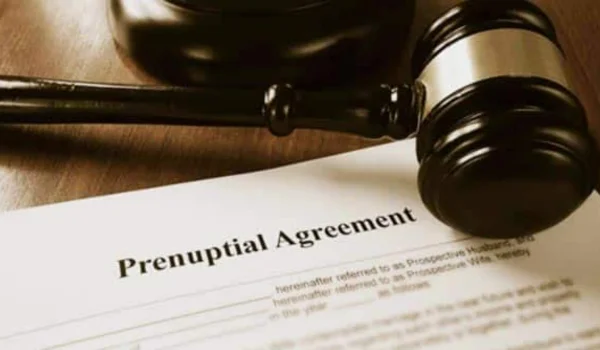You’d think talking about a prenuptial agreement would kill the romance before a wedding. But in reality, many couples today see it as a smart move — not a sign of mistrust, but one of mutual respect.
In Australia, these agreements are formally called Binding Financial Agreements (BFAs), and while they’re perfectly legal, they can be tricky. A small mistake or a moment of pressure can turn what was meant to be protection into years of legal stress.
Let’s walk through what often goes wrong, why the courts sometimes reject prenups, and what you can do differently.
Why So Many Prenuptial Agreements End Up in Trouble

A prenuptial agreement should provide peace of mind, but plenty don’t make it that far.
One of the biggest reasons? Poor legal advice.
Each partner is required — by law — to have independent legal advice. That means two separate lawyers, not one representing both. Skip that step and the court might toss the entire agreement aside.
Then there’s timing. Too many people sign their prenup a week before the wedding, exhausted from planning and barely reading the fine print. Later, one partner claims they were pressured or didn’t understand what they signed. And you know what? Judges tend to listen.
Fairness is another dealbreaker. If one person walks away with everything and the other gets crumbs, the court can easily call it “unconscionable.” Life changes, and what seems reasonable now might look unfair five years later — especially if someone leaves work to raise kids or manage the household.
Even technical errors — like missing signatures or dates — can ruin everything. It’s incredible how many disputes come from something as simple as a missing lawyer’s certificate.
When a Prenup Becomes Invalid
Yes, prenuptial agreements can absolutely be invalidated — and it happens a lot.
The Family Law Act 1975 sets out very strict requirements. Miss one, and your prenup could be gone in minutes.
If either party signed under duress, meaning they felt emotionally or financially forced, the court can throw it out. Imagine getting presented with a contract days before your wedding — you’d probably sign just to keep the peace. That’s exactly what the law wants to avoid.
Then there’s non-disclosure. A prenup is only fair if both parties are completely transparent about their assets. If someone hides property, income, or debts, that’s fraud — and the court won’t stand for it.
Changes in life circumstances matter too. Having children, illness, or a shift in financial status can all make a once “reasonable” agreement unfair.
If you’re not sure how to avoid those traps, it’s worth consulting Justice Family Lawyers. Their experience handling complex family law cases ensures you won’t overlook a detail that could cost you everything later.
How Courts in Australia Handle Prenup Disputes
When a prenup is challenged, the court looks beyond what’s written on paper. It studies how the agreement came about. Was it fair? Was it informed? Was it honest?
First, they’ll verify that both partners received proper legal advice and disclosed all assets. If one person skipped these steps, it’s a red flag.
Then they’ll weigh fairness — not just at the time of signing, but today. Say one partner sacrificed their career to care for children. A rigid prenup that doesn’t account for that is unlikely to hold up.
Courts also consider good faith. If one party misled the other about finances or intentions, it’s game over. Full honesty is the foundation of a valid agreement.
And if enforcing the prenup would cause serious hardship, the court will modify or cancel it entirely. The goal isn’t to punish anyone — it’s to reach an outcome that’s fair.
Avoiding the Common Pitfalls
Here’s the truth: a well-written prenuptial agreement isn’t a trap; it’s protection for both sides. But only if you handle it properly.
A few tips that can save you a lot of stress later:
- Start early. Don’t wait until the last minute. Talk about it months before the wedding.
- Be honest. Lay everything on the table — assets, income, and even debts.
- Hire separate lawyers. It’s not a formality — it’s what keeps your agreement legally sound.
- Review it regularly. If your life changes (new house, new baby, new job), update the agreement.
If you’re in Queensland and planning to secure your assets, consider working with prenup lawyers in Brisbane. They can help draft a clear, fair, and enforceable agreement that meets both legal and emotional realities.
A Realistic Take on Love and Legal Protection
Let’s be honest — no one gets married thinking they’ll split up. But planning for “just in case” doesn’t mean you’re jinxing your relationship. It means you’re being realistic and protecting each other.
The biggest problems with prenuptial agreements usually come from rushing, misunderstanding, or failing to treat it seriously. Taking your time, being transparent, and seeking proper advice can make all the difference.
At the end of the day, a prenup isn’t about love or mistrust. It’s about clarity, respect, and security — the same values that make relationships last.




